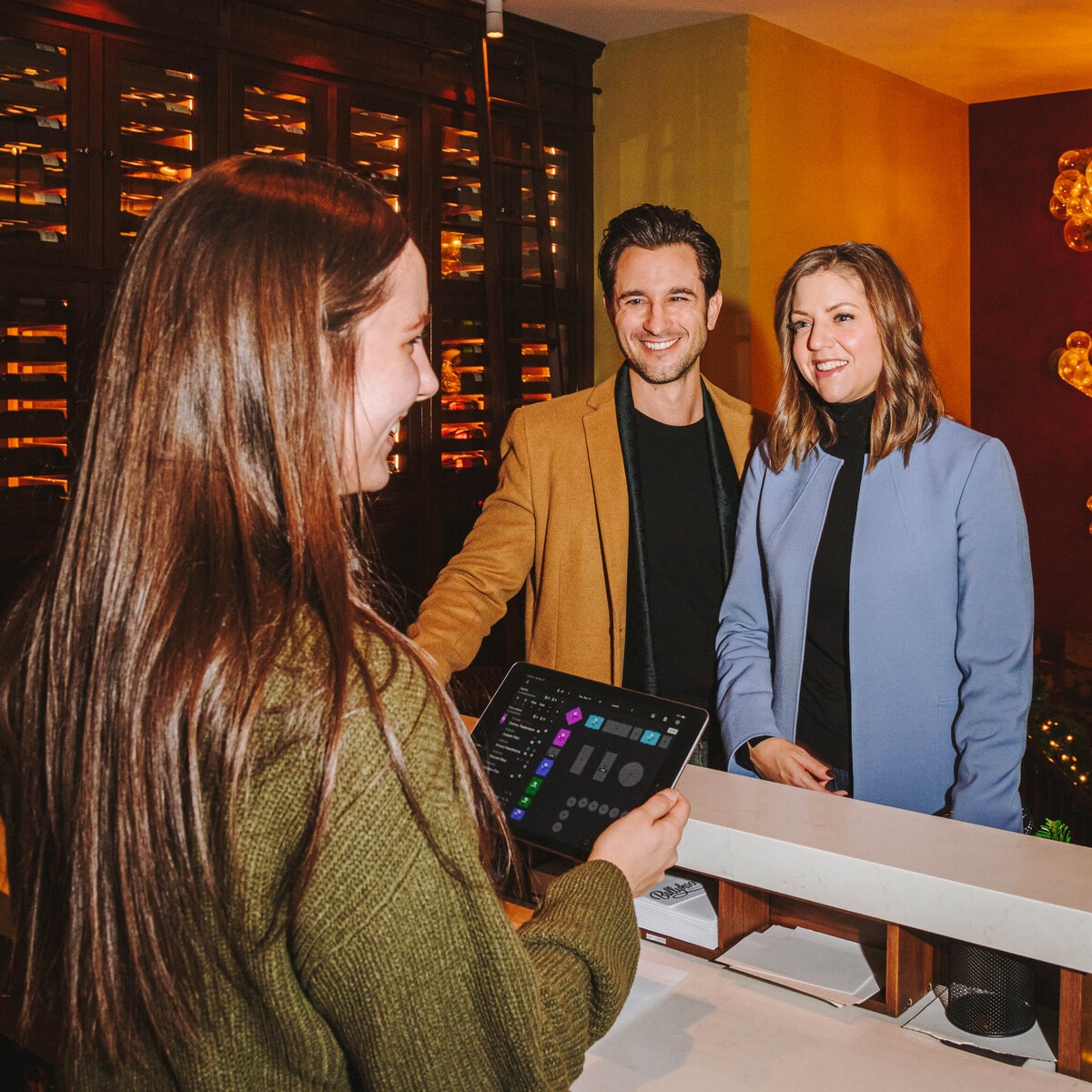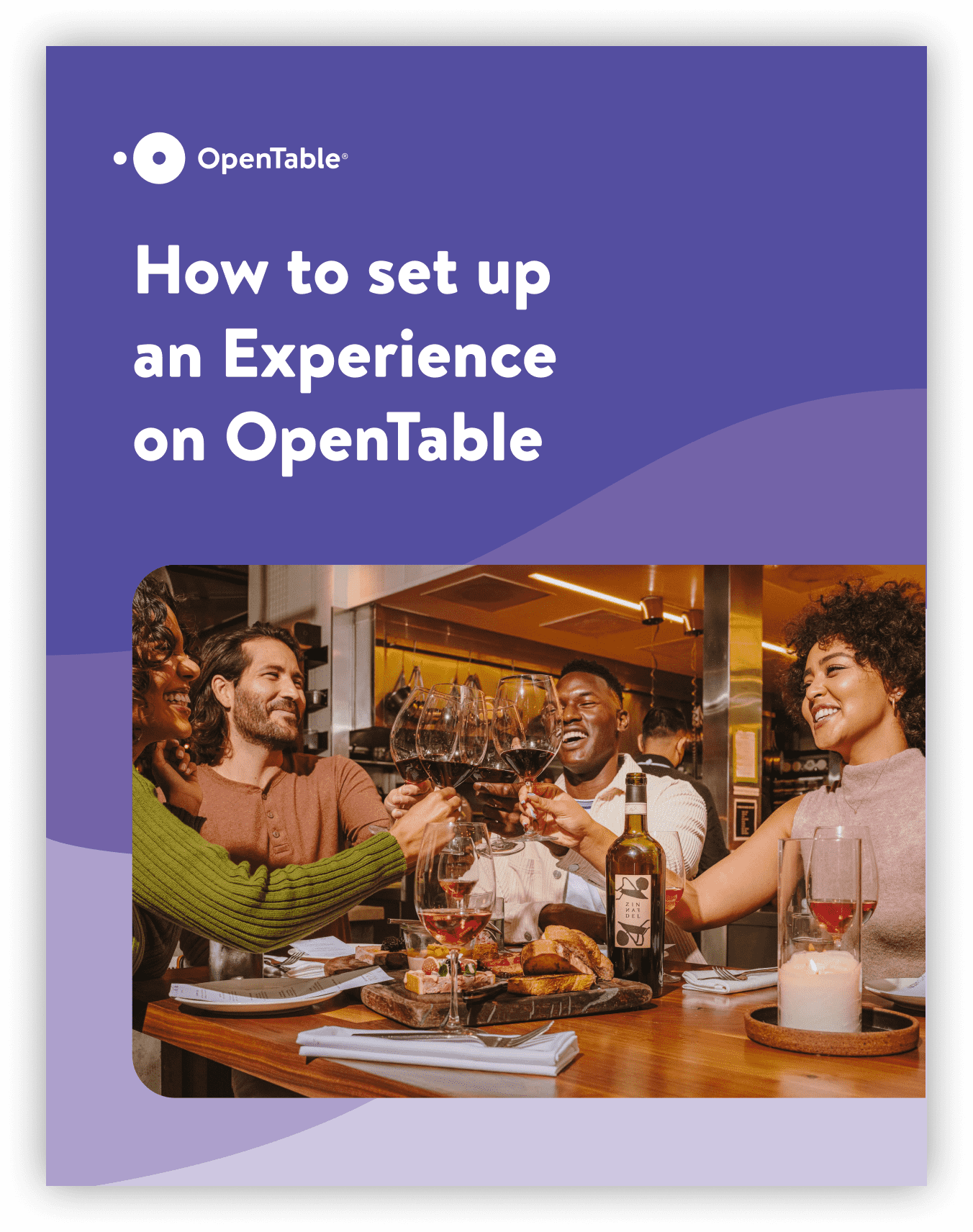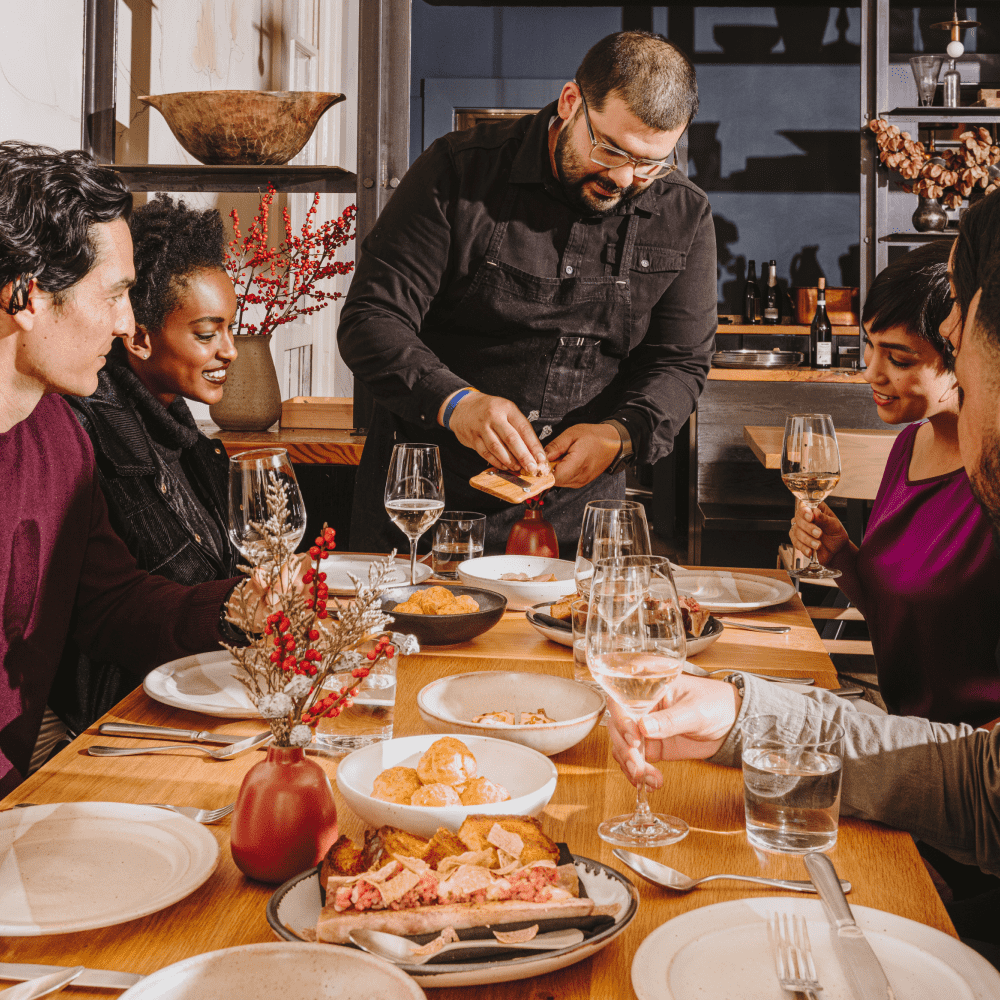Supply chain issues. Staff shortages. Capacity restrictions. Mask mandates.
Restaurants have seen and navigated the unimaginable throughout the pandemic, and—being on the front lines of service—employees often have the unenviable task of telling guests what they don’t want to hear. When the dish they want to order is no longer available, or if they’re reminded to wear a mask, diners may react emotionally, directing anger and frustration toward restaurant staff.
“It’s been 18 months of struggle for everything, and I think people come to restaurants to escape and indulge,” explains Kathryn Lott, executive director of the Southern Smoke Foundation, a crisis relief organization for food and beverage workers. “When the realities are presented to them—when they too are obviously affected by COVID in their own lives—they are over it. And it’s the server, bus boy, bartender, manager who receives that message and suffers from a diner’s behavior due to their frustration.”
The anxieties of this moment call for a mutual agreement between restaurants and diners: kind dining. Diners can show up for restaurants with patience and empathy, and restaurants can do everything in their power to prepare both guests and staff for uncertainties (which will, inevitably, occur at some point).
“A restaurant is a very delicate balance of many things, internally and externally,” says Matthew Schaler, chef de cuisine at Birdie G’s in Los Angeles. Like other restaurants, he’s struggled with stocking everything from produce to plastic wrap. “Our business relies on other businesses that are very different. If a business that makes something is affected, then the business that stocks that thing is affected, and so on. We’re doing the best that we can.”
Here are five ways restaurants can foster kind dining by helping diners regain a sense of control and protecting those on the front lines.
Be transparent with guests
As Lott observes, people grow angry and resentful when they feel out of control—and people feel out of control a lot these days. As often as possible, be honest with guests about what you’re going through to inspire empathy. Use all of the channels available to you—social media accounts, in-person interactions, and even reservation reminders—to explain that you’re short-staffed, inventory is spotty, and you appreciate their patience as you muddle through the unknown.
“We want our guest to know that we are a community, in this together, and that we understand the importance of human connections and the need to celebrate life’s special moments,” says Lauren Castellucci, director of sales and marketing for Castellucci Hospitality Group, which runs seven restaurants in Atlanta.
Use the same channels to spotlight the humans that make your business what it is. Post photos of your staff, and spotlight the work that they’re doing to stay open and keep serving guests. By reminding guests of the people behind the restaurant, you can also remind them that they’re part of a community—one that requires cooperation and mutual respect to thrive.
Communicate up to the last minute
Instilling a sense of control means telling guests exactly what they can expect at every step of the dining experience. Confirm reservations by calling, texting, and emailing guests, and encourage them to cancel or update their bookings, or even leave notes about their preferences. (OpenTable automatically sends reminder texts and emails, taking the burden off of your staff.)
You can also stay in touch directly with diners from the host stand using Direct Messaging to individually confirm reservation details ahead of time. That way guests are reminded of their upcoming reservation, they can let you know if their plans have changed, and you can better prepare for service.
Maintaining an online waitlist can similarly put diners back in the driver’s seat, giving them the chance to join the list remotely and avoid congregating in crowded areas. They can see exactly how much time is left before they will be seated, so there’s no need for impatient queries.
Eliminate extra steps
Schaler explains how operational challenges such as late-arriving deliveries can lead to disgruntled guests, especially if a diner sees another table being served a dish they were told was unavailable. For Birdie G’s, that’s a worst-case scenario. “I can’t say that there’s a single day when I know when the things I’ve ordered will arrive,” he says. “This results in last-minute substitutions, or having to 86-something. We try to be as upfront as possible, but diners don’t always know the full situation.”
As often as possible, look for opportunities to let guests do more ahead of time, reducing friction during the dining experience. Create a special event for guests with prepaid Experiences, which allow diners to book and purchase a whole package up front. Restaurants can offer menus they know they can execute on (think taco nights or tapas and wine pairings) and avoid any misunderstandings about availability and pricing.
Even with à la carte ordering, things like QR codes can reduce friction, since guests don’t have to wait for servers to bring menus. It may seem minor, but everything you can do to facilitate guests sitting, eating, and enjoying themselves faster will pay off.
Document bad behavior
If a guest is abusive with language or tone, it’s not enough to let it go or look the other way. Write it down, Lott advises, and make sure people know that the staff is united and will not tolerate it.
OpenTable restaurants can use guest notes to keep track of offenders, documenting confrontations so that staff can prepare for their visits and anticipate any bad behavior (no-shows, complaints, or the like). Take time during pre-shift meetings to discuss any guest profiles with red flags and how the team might handle them. In extreme cases, a restaurant may even decide to refuse to serve a guest. Ultimately, the decision is up to the restaurant management, but having more information to help make the call is always an advantage.
Protect your staff and yourself
An open dialogue between management and staff is crucial to creating a supportive work culture. Employees should always ask for help from a manager when a customer begins to escalate an issue. Managers have a tough job, too, having to answer for low supplies, staff shortages, and broken systems that are all out of their hands.
In those cases and others, Lott says, individuals should seek out resources that are available to them. Southern Smoke offers free mental health programs for food and beverage employees in Texas, and they hope to expand to all 50 states in the next five years. Until then, workers may have to take matters into their own hands.
“There might need to be a coming together with other restaurant workers,” Lott says. “It’s imperative that people are heard when they are suffering. Saying ‘This sucks’ is different than saying ‘I’m really struggling’—let others around you know that you are having a really hard time and why.”




